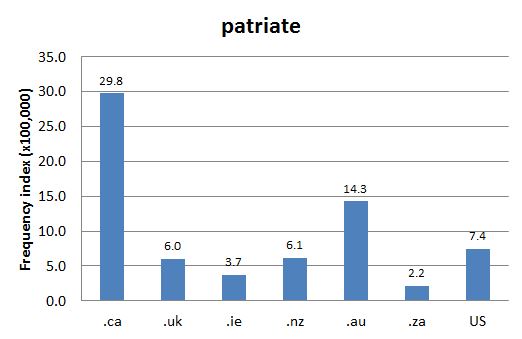DCHP-2
patriate DCHP-2 (July 2016)
v. — Law, Politics, Administration
the act of transferring the Canadian constitution from the mother country to the former colony.
Type: 3. Semantic Change — The term patriate refers to a legal process of constitutional law and concerns the right of the Canadian parliament to amend the British North America Act, which was, from 1867 until 1982, located in Westminster, England. Patriate in this sense, referring to the patriation of the British North America Act to Ottawa, is a Canadian innovation and is most prevalent in Canada (see Chart 1). Note that the internationally more common term for that process was "repatriate", as shown in the 1968 quotation; subsequently, Canadian media adopted the term patriate in later years.
See also COD-2, s.v. "patriate" and Gage-3, s.v. "patriate", which are marked "Cdn", and OED-3, s.v. "patriate", which is marked "Canad".See also: British North America Act Meech Lake Accord
Images:
Chart 1: Internet Domain Search, 17 Aug. 2012
